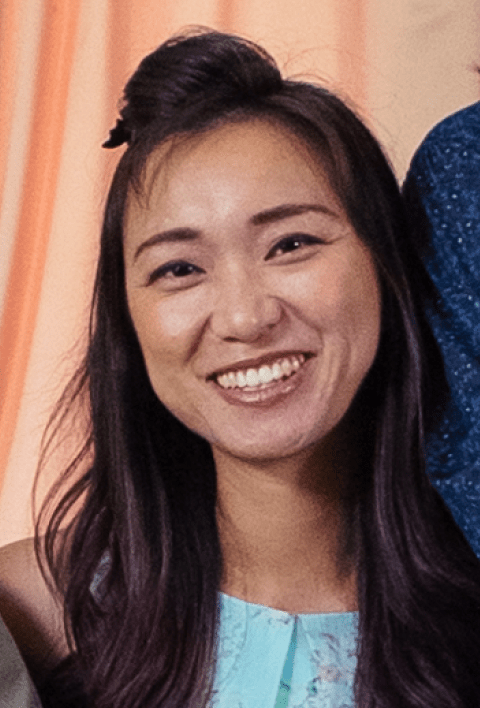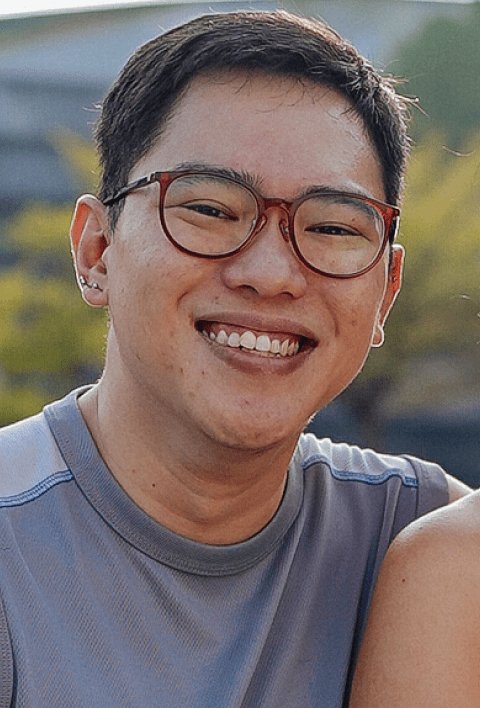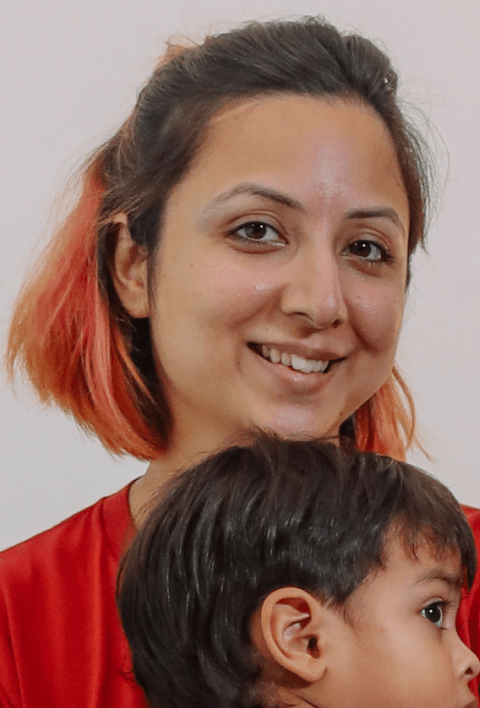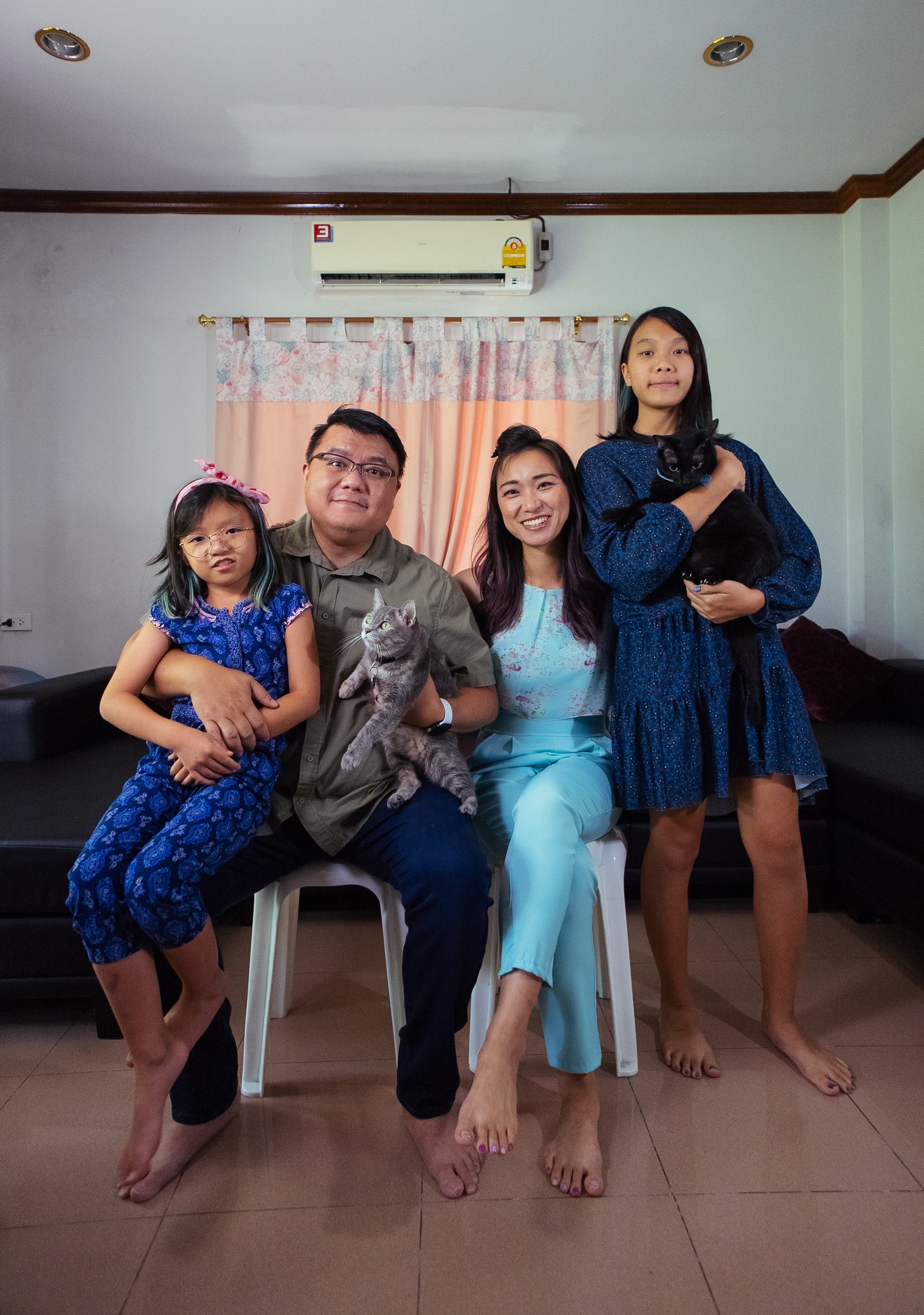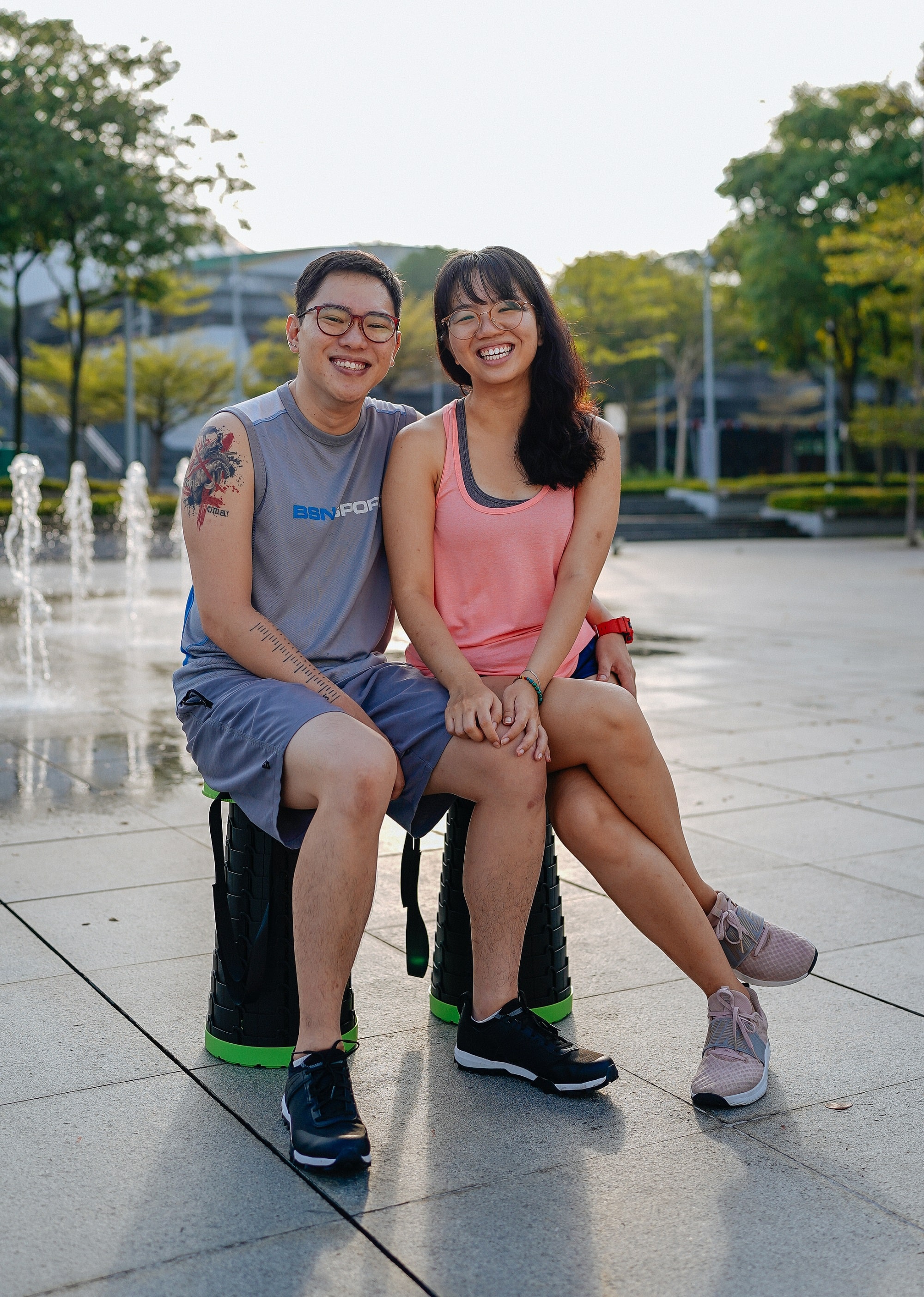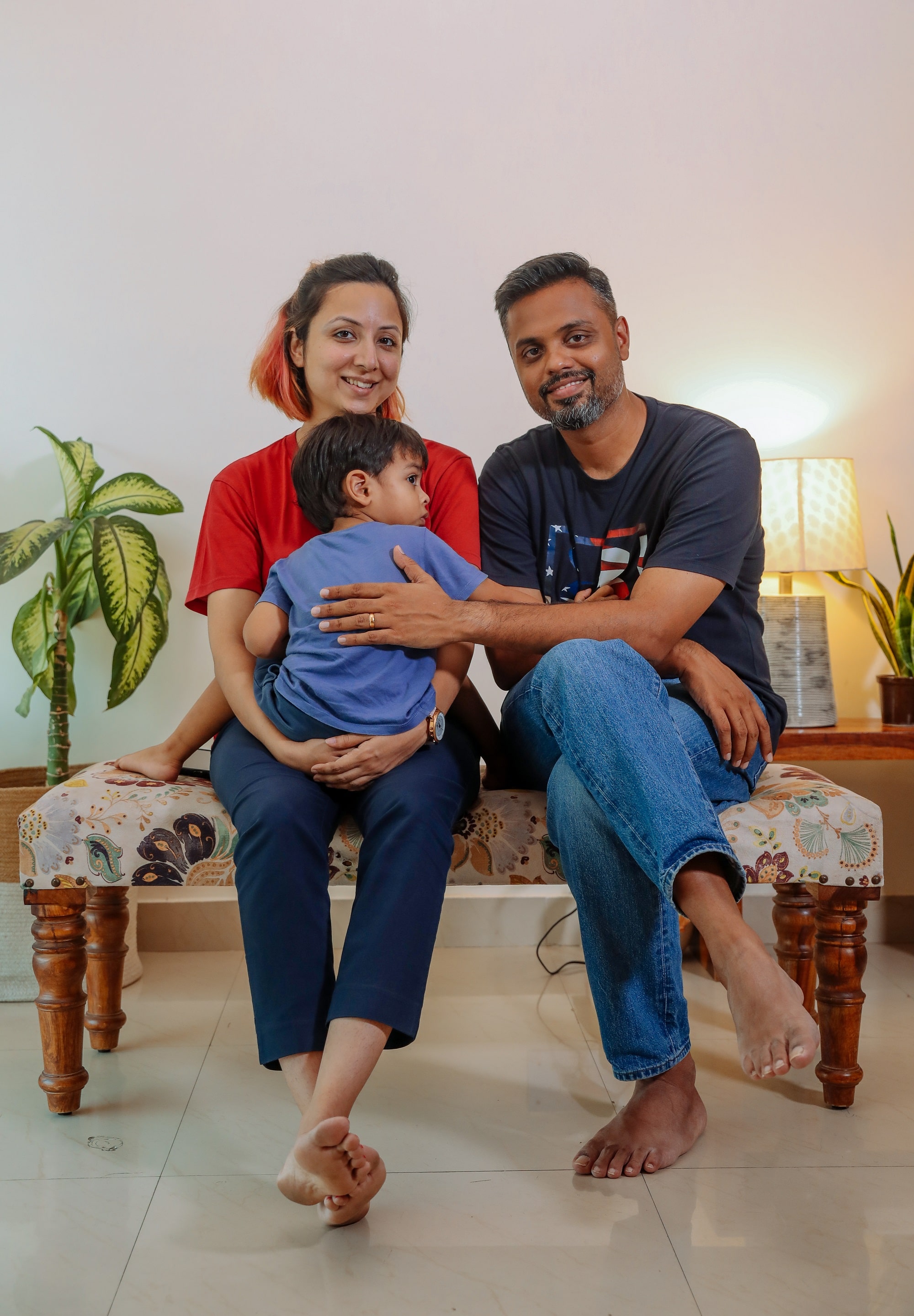
The following stories include personal accounts of trauma, suicide and domestic abuse that some readers may find disturbing. Discretion is advised. If you need help to deal with trauma or know someone who does, please contact these organisations in your country.
When children experience traumatic events, their feeling of safety is shattered.
Edwin, Sharon and Priyanka each had to find new ways to cope.
As a child, Priyanka found comfort in art.
When her parents fought at home, Priyanka would turn to her sketchbook. She often drew pictures of eyes.
“Maybe it has to do with how I was an observer when I was a kid. An observer of what was forced in front of my eyes,” the 34-year-old communications specialist muses.

This quiet neighbourhood cafe is one of her favourite places. She discovered it on a date with her husband. For her, it’s a space of safety and creativity.
At 17, Edwin Chaw found himself moving out of home with his father to escape turmoil at home.
It was the start of a new life for them.
The family arguments may have ceased but a different kind of fight was just beginning inside of him.
Edwin’s panic attacks in school became more frequent, causing him to finally drop out when he was 18.
He went on to explore alternative paths to getting an education. He spent a semester studying integrated events and project management at a polytechnic, enrolled in a music school learning classical guitar, and eventually, found interest in counselling.
“With all the stuff going on in the background and my history in my head, I wanted to maybe understand a bit better, learn some of the tools that I could use to get myself out of it,” explains the 30-year-old compliance analyst.
It was the beginning of his healing journey.
After completing his National Service — Singapore’s military conscription — Edwin left for Melbourne, Australia to further his studies.
He recalls the excitement of shopping for simple things, like household cleaning supplies, or a new laundry basket.
“It was exciting to be in a new city, away from the pain, with a chance to rebuild oneself.”
But his hopes of a fresh start were marred by the anxiety that followed him from Singapore. When things went wrong, Edwin would blame his “moral character failures,” or a “defect in [his] personality,” or a “weakness that [he] was unable to overcome.”
All that changed when he found a psychologist, and was diagnosed with post-traumatic stress disorder (PTSD).
“It was a relief because there is a name to the condition and everything that I was feeling. There’s also a solid body of work behind PTSD and PTSD recovery,” he shares.

“You are confronting the things that hurt you and scare you the most. You are trying to be better - that is strength.”
These comforting words from Edwin's psychologist helped him reframe his narrative, and gave him the courage to face his deeper fears.
For 34-year-old Sharon Khoo, stepping into the light after so many years of trauma involves a ritual that she maintains daily.
Explore the 360 video of Sharon's safe space below by clicking and dragging the mouse.
And it was in this space where she wrote her own memoir, Hope in Despair.
“I wanted there to be meaningful purpose to all that I've suffered, the pain, the trauma, the tragedy, and to really honour my parents and respect them in spite of what had gone wrong,” Sharon shares of her book.
In an effort to reconcile with her past, Sharon also wrote letters to her parents, opening up to them about her journey and her desire to reconnect.
"I knew that behind all that they had been, [my parents] were two very broken kids. And my parents needed the love back too from me, and I wanted to show it to them.”
Sharon’s book exposed what had happened behind closed doors at home — abuse that she could not talk about for years.
But, to her surprise, after reading a draft of her book, her mother encouraged her to publish it. “I'm fully reconciled with her,” Sharon smiles.
“There was a lot of forgiveness that went on between me and her,” Sharon says, adding that their relationship has never been stronger and that they are in touch regularly.
While her father did not object to the book, Sharon and him still struggle to reconcile. There were times when she felt that he was still being verbally abusive in front of her daughters, prompting her and Joshua to set boundaries.
Sharon decided that she would not speak to her father directly until he saw a counsellor, a wish she had expressed to him in a letter.

Pictured below:
An early draft of Sharon’s letter to her father.
7:30 on a Sunday morning.
Sharon and Joshua are rushing to get their two daughters, Valerie and Shannon, out of the house. The family is heading to The Acts Church of Chiang Mai, where they serve as independent missionaries.
“Faith, to our family, is everything because it’s an anchor for our souls and it’s what keeps us together,” shares Sharon as her family packs themselves into the car.
Attending church is a weekly bonding affair.


They moved to Thailand in 2010 and have been living in Chiang Mai ever since.
Sharon added, "It [my faith] saved my life from suicide and trauma, literally." She recalls hearing God’s voice telling her to stop during her final suicide attempt.
Besides helping her to make sense of the pain, Sharon’s faith also gave her strength to make peace with her parents.
To pay it forward, she now serves as a mentor and pastoral counsellor in church.
Priyanka also found security and connection in her church’s community.
“I felt safe, I felt heard, I felt like I belonged.”
Even though she was married and living independently, she still felt that a part of her had not moved on, and she was “living with this black mass in [her] heart” because she had not forgiven her father.
“I’m 34, and I love my father. Which I could have never imagined when I was a traumatised child.”
After a difficult period, Priyanka has finally reconciled with her parents.
She now focuses on building “a stronger shield” around herself as she learns to deal with her triggers. After a ten-year journey, she feels that she is no longer held back by what had happened nor is it over-shadowing her present.
“It [the past] is not my core identity anymore.”



When it comes to recovery, there is no standard timeline. Healing happens when "you notice changes in you, in how you cope with situations and how you cope with your interactions with people," explains Eve Teo, a psychotherapist.
“Therapy is actually really hard work, “ Eve says, referring to sessions where people reveal their vulnerabilities as they work through those difficult memories that they would rather keep buried.
The therapist-client relationship is a delicate dance that respects each other’s boundaries while moving towards the possibility of a better future.
“It has to be safe and it has to feel safe."
While it may be helpful for some people to revisit trauma memories in order to heal, Eve believes that it is more important to not put people in a situation where they will be re-traumatised unnecessarily. It is like opening an old wound, causing the person to re-experience the difficult emotions of their past like anxiety and flashbacks.
That is why she works with clients without “aggressively interviewing to get answers or to have a biased reaction to what their trauma response is”.
Besides therapy and counselling, it is also important to “have a community who will journey with those in recovery and provide emotional support,” she says.
Echoing the need for a healthy community in trauma recovery, Ling-Anne Hsieh and Iskandar Mahadi started Project Green Ribbon (PGR), a Singaporean initiative that aims to create a safe, non-judgmental space for young people to talk about their struggles.
Once a week, the couple opens up their home to a group of youths. There is no structured programme.
Instead, over lunch, the couple simply spends time chatting with their young guests, some of whom have been coming for years.
Take a peek at a typical session at Ling and Iskandar's home below.
The couple believes that a community is first built by forming healthy relationships with each other.
Ling and Iskandar talk about the importance of having hope in life.
Both Ling and Iskandar have walked through the deep valleys of depression in their personal lives, and sought professional help. While one-to-one counselling has its place in recovery, both feel that having someone by their side is just as important.
They want PGR to be that source of support for the youths.
“Just your presence, just by being there even though you’re not saying anything. Sometimes that’s what someone needs. And that’s all they need.”
Like many others who are on their journey in understanding themselves better, Edwin, Sharon and Priyanka have found their own community.
“It goes back to the saying, ‘The blood of the covenant is thicker than the water of the womb.’
It’s a group of people who are not bound by blood, they’re not bound by legal circumstance, they’re not forced to be with each other.
It’s a group of people with which they can be vulnerable, they can share their deepest darkest secrets, their most shameful experiences, and still know that they will be supported, they will be accepted.
Not because they have to, but because they want to."

The desire to connect with others and feel less alone was something Edwin grappled with growing up.
As a child, he did not have the words for what he was feeling or the terrible things that were happening to him.
“You don’t go right out and say ‘Oh, I was molested as a kid.’”
When he did work up the courage to say something, he was often dismissed or people just did not know how to help.

Today, Edwin has found his chosen family.
“I cook for my girlfriend and my housemates now,” Edwin shares. Cooking calms him, and helps him focus on something other than his anxiety.
It also helps him rediscover the joy he thought he had lost.
He started cooking for his friends when he was living in Melbourne, and eventually hanging out and cooking at each other’s houses became a ritual.
When he returned to Singapore in 2020, Edwin found himself on familiar ground again. But this time, he was no longer alone.
As a child, Edwin felt defenceless, unable to stand for himself.
“For the longest time I just kept quiet, because I was afraid of what might happen if I said anything,” Edwin shares.
As he grew up, that sense of helplessness manifested as rage and “it comes out now as an almost over-compensation, rather than sitting back and passively letting it happen to [me], I have to fight back with every ounce of strength that I have to make sure it doesn’t happen again”.
Edwin has since learned to set boundaries to protect himself.
“It could be a gentle, ‘Hey I don’t like it when you’re doing this thing’, or ‘I don’t like it when you’re touching my stuff. Can you please just not do that in the future?’”
But it isn’t always easy.
“The first time I vocalised my boundaries was horrible,” he laughs. “It was terrifying because I didn’t know whether [it] was a fair boundary for me to draw.”
He was also unsure about how others would react. “Would they belittle me? Would they ignore it and refuse to respect the boundary?”
Since then, Edwin sees boundary-setting as a “muscle that needs to be trained every so often” and has become less apprehensive about it.

It was at a church camp that 18-year-old Priyanka met her best friend, Parul.
“We were on the same bus. She was super loud, super extrovert, and I was like, ‘Who's this crazy girl? Why is she yelling so much?’ I was trying to take a nap at that time,” Priyanka laughs.
It is a friendship that has come a long way.
Priyanka recalls the time when her family kept calling her on the phone during an argument at home. Parul came to her defence by picking up the call and told them to “give her space”.

“For me, she’s more than a friend. She’s family.”
Priyanka’s spiritual family in church has also played a huge part in her recovery. “It brought a sense of belonging to my heart,” she said, adding that they were the pillar of support that had been missing her whole life.
“I was looking at these healthy couples who were so different from my parents in terms of how they dealt with each other,” Priyanka explains. Seeing these healthy relationships changed her perspective on family.
In time, she was convinced that God would bring someone into her life and that she was “supposed to get married”.
That’s when she met Akhil.
"I feel like I’m flying, whether it's in my personal life, my family life or my career. I feel like I’m free to live it the way I’ve always wanted to.”
Looking back, Sharon realised that she was looking for someone to “save her”, whilst Joshua wanted to “save the damsel in distress”.
But theirs has evolved into a marriage of equals.
Beyond her immediate family, Sharon has also found a “rare, positive, loving” connection with her mother-in-law, Dorothy Jason.
Even though in the beginning it was difficult for Dorothy to understand her daughter-in-law’s depression, she still made the effort.
“That helped me feel cared for, loved, supported and motivated to get better in my recovery,” Sharon shares, adding that Dorothy also paid for her trauma-healing retreat and prays for her every day.
“Knowing that the future is going to be better than the past and present always gives me hope. In the same breath, my family, my husband and my children, having them with me… just makes me feel like I can have peace.”
Credits
Series Producer, Writer & Content Design / Tan Pei Lin
Producers & Writers /Anmol Vaswani, Lilian Tan
Field Directors / Lilian Tan, Mamta Singh, Tan Pei Lin
Editors / Amelia Su, Sueanne Teo
Illustrator & Animator / Denise Nicole Yap
Camera / Agnivesh Yadav, Lau Hon Meng, Mui Vattanasiriporn, Sampoorna Nand
Sound / Anuradha Bansal, Julius Toh, Michael Lee, Sky Watthanarangseesenkaew
Photographers / Agnivesh Yadav, Lau Hon Meng, Tan Pei Lin
Executive Producer / Ivan Tan
Thank you to Sharon, Priyanka and Edwin and their families for opening their lives to us.

















